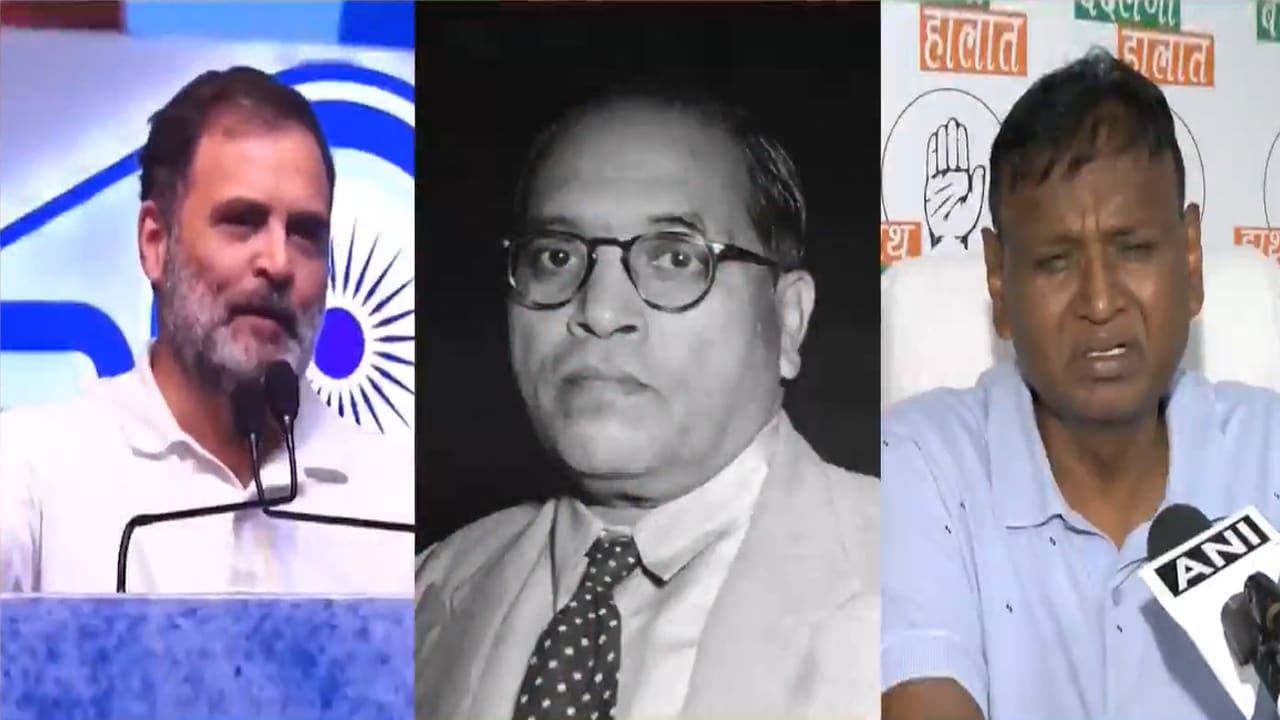
The controversial statement was made at a public event where Udit Raj was speaking on the role of political leaders in shaping modern India. Raj reportedly praised Gandhi for his contributions to social and political reform, drawing a direct connection to Ambedkar’s efforts towards securing rights for marginalised communities. Raj’s comments, however, did not sit well with BJP leaders, many of whom took to social media and public platforms to express their dissatisfaction.
BJP spokespersons and senior members swiftly condemned Raj’s remarks, arguing that such comparisons trivialise Ambedkar’s monumental achievements. "Rahul Gandhi and Ambedkar belong to two entirely different political, ideological, and historical spaces. To equate them is not only disrespectful to Ambedkar but also undermines the significance of his work for social justice," stated a senior BJP leader. The BJP has long held Dr BR Ambedkar in high regard as one of India’s most revered figures, a key architect of the country’s Constitution, and a champion for the rights of Dalits and other marginalised groups.
Raj's comments also reignited a wider debate on the role of historical figures in contemporary politics. While many in Congress supported Raj's right to express his views, calling his remarks a reflection of Gandhi’s own struggles for social equality, the BJP has made it clear that any attempt to undermine Ambedkar’s legacy will be firmly opposed. Raj’s comparison, some argue, reflects the Congress party’s efforts to align itself with progressive and social justice movements, a strategy that has gained traction within certain segments of the electorate.
Critics of the Congress, particularly within the BJP, argue that drawing such comparisons between political figures with vastly different legacies risks diminishing the contributions of both leaders. Ambedkar, who famously campaigned for the abolition of untouchability and the rights of Dalits, stands in stark contrast to Rahul Gandhi’s leadership style, which is often characterised by a dynastic approach to politics. The BJP’s vocal opposition suggests that the party views the invocation of Ambedkar’s name by Congress as part of an attempt to reframe its narrative on social justice.
In an era of polarised politics, the exchange highlights a deeper ideological divide between the two largest political forces in India. The BJP, which has often projected itself as the protector of Hindu culture and values, has been accused of undermining the inclusive, secular ideals Ambedkar championed. On the other hand, Congress has faced criticism for its struggles in redefining its political identity in a rapidly changing political landscape. Raj’s comments, however, indicate an attempt to reclaim the party’s association with social justice causes that it once led.
For the Congress, the challenge lies in navigating this delicate terrain. Leaders like Raj have tried to place the party at the forefront of social and economic justice movements, drawing inspiration from Ambedkar’s principles of equality and empowerment. However, these efforts have often been overshadowed by the broader political dynamics at play, with Gandhi's leadership frequently being scrutinised for failing to connect with the masses on the same level as other prominent figures.
The public backlash to Raj’s remarks has also brought attention to the Congress party's ongoing struggle to balance its historical legacy with the evolving political demands of the present day. The party’s critics argue that its reliance on dynastic leadership has weakened its ability to truly represent the ideals of equality that Ambedkar stood for. On the other hand, Congress supporters point to the party’s historical role in shaping India’s democratic fabric and the social justice reforms it has championed.
